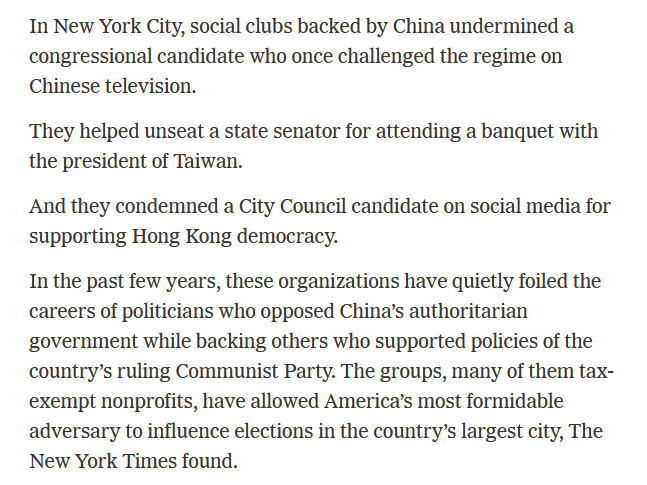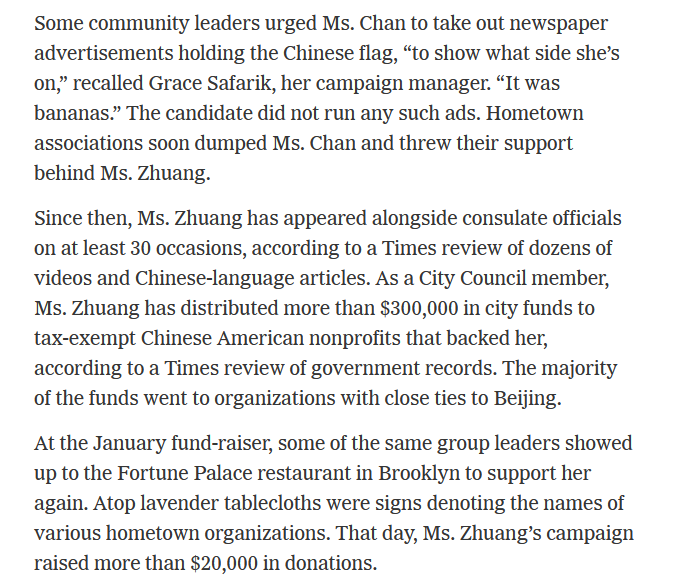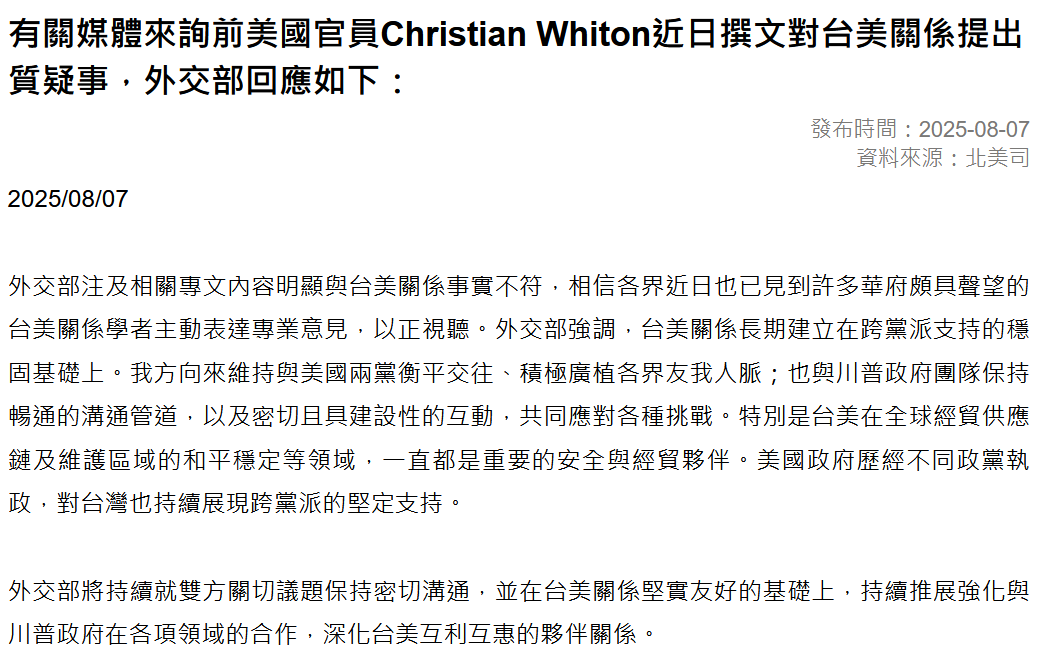How the Chinese consulate in New York has unseated multiple city and state level politicians they do not like 

@PekingMike et al. in the New York Times: nytimes.com/2025/08/25/nyr…
@PekingMike Chinese diplomats leading Chinese community groups in joint oath ceremonies where participants state their commitment to safeguarding the motherland and making China great once more 



@PekingMike Of course New York City funds are being channeled back into these same influence orgs. Of course.
"[Councilwoman Susan Zhuang] has distributed more than $300,000 in city funds to tax-exempt Chinese American nonprofits that backed her..."
"[Councilwoman Susan Zhuang] has distributed more than $300,000 in city funds to tax-exempt Chinese American nonprofits that backed her..."

@PekingMike See also
https://x.com/Scholars_Stage/status/1960143469260972357
• • •
Missing some Tweet in this thread? You can try to
force a refresh















